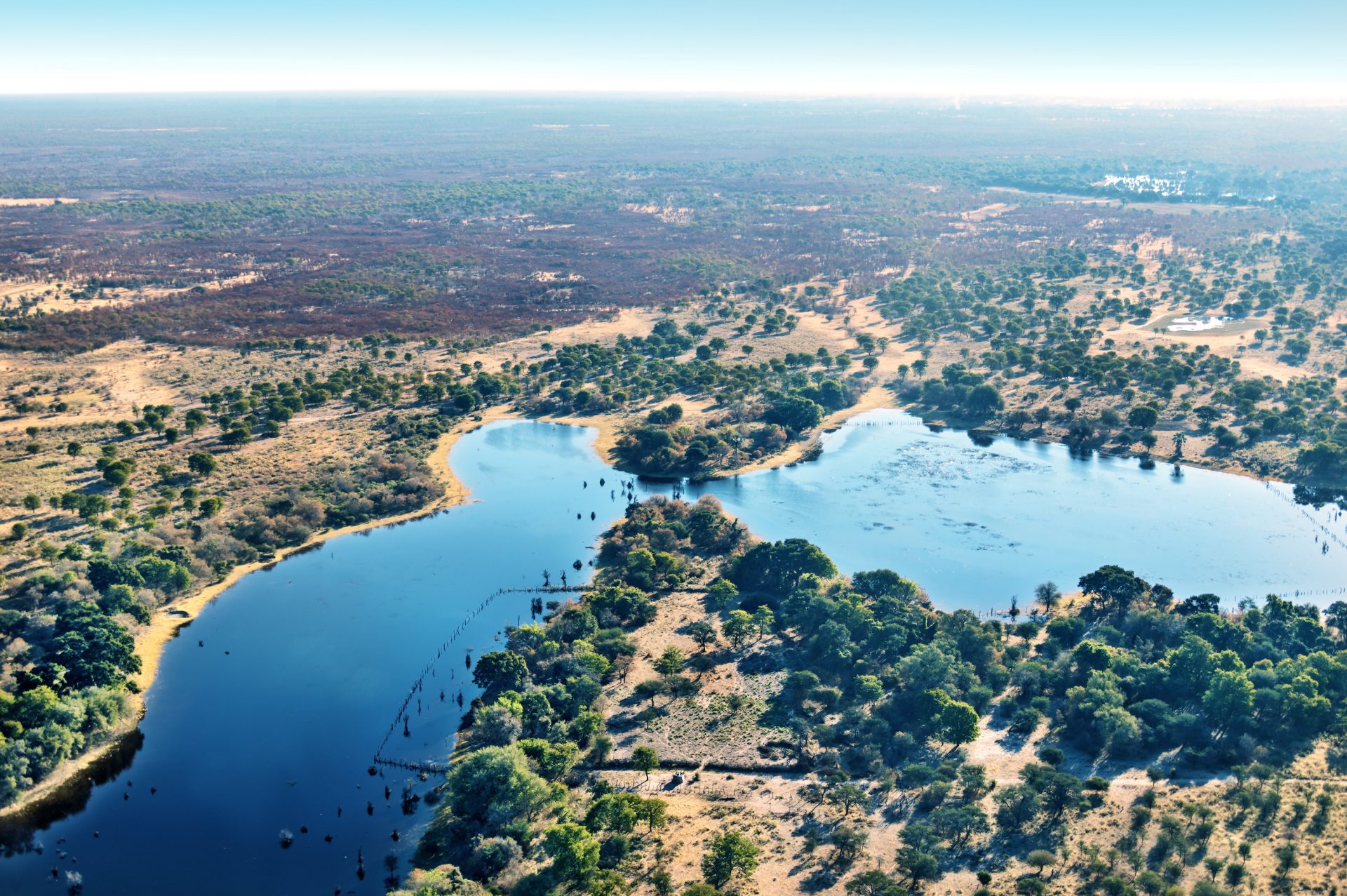heading
PROJECT: INTERNATIONAL CENTRE FOR WATER COOPERATIONAbout ICWC
The International Centre for Water Cooperation (ICWC) is part of the UNESCO International Hydrological Programme’s Category 2 Centres family, with 39 centres focusing on water.
It is the only UNESCO Centre located in Sweden and the first devoted to issues of transboundary water management in connection with peace, conflict, and regional development.
The Centre operates on the basis of a tripartite agreement between the Government of Sweden, UNESCO and SIWI. Human resources carrying out activities are sourced from SIWI staff. They work in cooperation with partners from regions, other international knowledge institutes and academia.
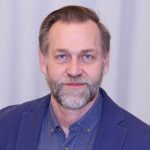
ICWC was established in 2014 as an independent research institution through a tripartite agreement between UNESCO, the government of Sweden and SIWI.
An important part of ICWC is the Research School for International Cooperation, hosted by the Department of Peace and Conflict Research at Uppsala University. The research school provides in-depth research on water cooperation with a primary focus on water for peace and development.
ICWC is governed by an international Board consisting of eight representatives from academia, governments, and civil society.
Vision
The International Centre for Water Cooperation envisions a world where water is peacefully shared, used and protected for the well-being of people, society, and nature.
Mission
The International Centre for Water Cooperation’s mission is to generate and share knowledge on the state, trends, and benefits of water cooperation and strengthen capacity of technical and political actors for increased cooperation on shared waters.
Objectives
The long-term goal of ICWC is to contribute to the implementation of the 2030 Agenda for support of economic development and welfare of developing countries.
The intermediate goal is to contribute to the implementation of the ninth phase of the UNESCO Intergovernmental Hydrological Programme (IHP-IX), covering 2022-2029.
All the 17 sustainable development goals (SDGs) of the 2030 Agenda are partly or fully underpinned by the need for good water governance. However, for ICWC the long-term goal focuses particularly on SDG 6 (Clean water and sanitation), SDG 13 (Climate action), and SDG 16 (Peace, justice and strong institutions).
The objective for ICWC is to contribute to sustainable governance and management of shared water resources by improving cooperation on such resources. The objective constitutes the common ground between the Centre and SIWI’s programmatic objective on shared water governance. The results of the ICWC will also contribute to SIWI’s vision of a water-wise world.
The work towards achieving the objective builds on two groups of strategic activities with the intention to develop and advance knowledge on transboundary water cooperation through carrying out own research and through compilation of existing research results. The knowledge produced and compiled will form basis for capacity building and policy support of target audiences.
Strategic activities
- Develop knowledge related to the sustainable management of transboundary waters and the role of such resources as drivers of cooperation between countries.
- Inform and enhance capacities of targeted audiences on the basis of research accomplished by developing knowledge products such as books, articles, policy proposals and training programmes and linking research and policy spheres.
Theory of Change
The ICWC Theory of Change outlines anticipated positive linkages between generation and dissemination of knowledge on water cooperation. When this knowledge is used to support capacity building of technical and political actors it will help pave the way for informed decisions, increasing the willingness and ability to cooperate on shared waters for the benefit of socio-economic development.
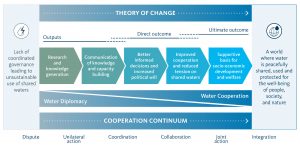
As part of the theory, ICWC anticipates that a target audience who is well equipped with knowledge on sustainable management of shared water resources is more likely to make decisions towards sustainable governance of such resources. Anticipated outcomes will be improved water cooperation, which may lead to less conflict and tension, with positive effects both at national and regional levels. Improved governance of shared water resources will in turn contribute to more effective implementation of the 2030 Agenda as well as economic development and welfare of developing countries.
Governing Board members
Karin Gardes, Acting Executive Director/Chief Operating Officer, SIWI 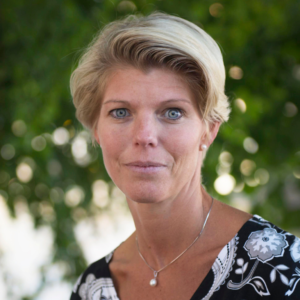
Karin joined SIWI in 2020 after a long and established career with more than 20 years in international development cooperation, where she has held various positions at the UN, the EU, International IDEA and Save the Children.
She holds two Master degrees from the Stockholm School of Economics and the College of Europe in Belgium. Karins areas of expertise include international relations, global policy and advocacy work, strategy development and partnership building.
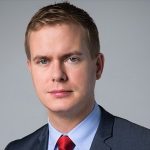 Mr Gustav Fridolin, Representative of the Government of Sweden
Mr Gustav Fridolin, Representative of the Government of Sweden
Fridolin is teaching history and religion at the adult popular education organized by the Swedish charity organization Stockholm City Mission. He is also a part-time doctoral student in Education at Gothenburg University, and a member of the executive board of the European Association for the Education of Adults based in Brussels. He serves as the Chairperson of the Advisory Board to Stockholm Municipality on Agenda 2030. Fridolin was elected Member of Parliament in 2002 for the Green party. Between 2011 and 2019, he was co-leader for the Green party and from 2014 he served as Minister for Education in the Swedish government. During his time in the government, he was responsible for the Swedish relationship with UNESCO. He has published six books, about politics, including sustainable industry and environmental politics.
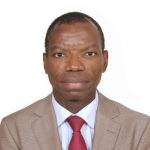 Dr Abou Amani, Director, Division of Water Sciences, UNESCO
Dr Abou Amani, Director, Division of Water Sciences, UNESCO
Dr Amani is the Director of the Division of Water Sciences at UNESCO, based in Paris. He is also Secretary of the Intergovernmental Hydrological Programme (IHP). Dr Amani is a civil engineer and graduate from the Ecole Polytechnic of Thies in Senegal (1990). He holds a PhD on civil engineering with focus on hydrology and water resources from Polytechnic of Montreal in Canada (1995). He also holds the title of “Maitre de recherche” which is equivalent to senior researcher or Associate Professor, granted by CAMES (African Higher Education Council). He joined UNESCO in 2006, first as a Science Programme Specialist in Accra, Ghana. He was later in charge of IHP for the Sub-Saharan Africa based in Nairobi. Consequently, he moved to the headquarters in Paris as Chief of Section on hydrological systems and water scarcity within the Division of water sciences, and then Chief of Executive Office of the Natural Sciences Sector. Before joining UNESCO, he worked at AGRHYMET regional centre in Niamey as a regional hydrologist, Head of Water unit and Scientific Coordinator. He worked for three years at the Institute of Research for Development as a researcher and visiting scientist. He has been a member and contributor of various committees, initiatives and panels among others: World Water Council), IPCC and World Water Development Report. He has many years of research and teaching, and he is the author of over 50 scientific papers.
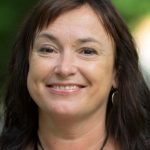 Dr Tora Holmberg, Vice-Rector at Uppsala University and Professor at the Department of Sociology
Dr Tora Holmberg, Vice-Rector at Uppsala University and Professor at the Department of Sociology
Tora Holmberg is the Vice-Rector for Humanities and Social Sciences at Uppsala University. She is also a Professor at the Department of Sociology. Dr Holmberg undertakes research within science and technology studies, urban theory, human-animal relations, and environmental sociology. Her most recent work investigates the circular economy of wastewater and food waste.
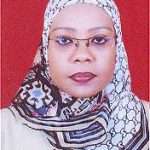 Dr Muna Musnad, Director of the Research and Innovation Department, UNESCO Chair in Water Resources, Omdurman Islamic University, Sudan
Dr Muna Musnad, Director of the Research and Innovation Department, UNESCO Chair in Water Resources, Omdurman Islamic University, Sudan
Dr Musnad is the Director of the Research and Innovation Department at UNESCO Chair in Water Resources, Omdurman Islamic University, Sudan. She has more than 19 years of experience as a researcher and over 6 years as a consultant at KIMA consultancy. She serves in the Secretariat of the Integrated Water Resources Management Network-Sudan (IWRM-Net-SD). She is a key member at Women in Water Diplomacy Network in the Nile Basin, at the Stockholm International Water Institute. She holds aMasters from University of Dar es Salaam, Tanzania (1998) and a PhD in Water Resources Engineering Development and Management (2016) from UNESCO Chair in Water Resources, OIU- Sudan. Her technical experience is extensive with knowledge about Integrated Water Resources Management, water quality and water supply, and hydrological and hydrogeological models such as MODFLOW, HEC-RAS, HEC-HMS, Q2K as well as GIS. Her research includes work with Riverside Company (USA) for ENTRO-NBI and the Nile Basin Capacity Building Network-River Engineering Project. In addition, she is a lecturer in an M. Sc. Program in Environmental Engineering.
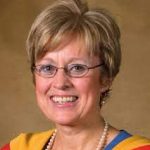 Dr Patricia Wouters, Professor, Wuhan University
Dr Patricia Wouters, Professor, Wuhan University
Professor Wouters has 30 years of experience in the field of public international law, specializing in transboundary water cooperation, following an early career as a practicing lawyer in Canada. She is the founding Director of the International Water Law Academy (IWLA) at the graduate law China Institute of Boundary and Ocean Studies at Wuhan University, China. The IWLA initiative builds on Professor Wouters appointment under China’s 1000 Talent Professor programme, initially at Xiamen Law School, where she developed the China International Water Law Programme. Professor Wouters was also the founding director of the UNESCO Centre for Water Law and Policy (IHP-HELP Centre for Water Law and Policy under the auspices of UNESCO), which grew out of the International Water Law Research Institute established by Professor Wouters in 1997 at the University of Dundee, Scotland. Professor Wouters has a significant body of research, has supervised a large cohort of PhD and LLM students, and devised and led teaching and executive training activities around the world, convening numerous international symposia in the field of international water law. She has served on a number of international advisory boards and expert bodies, including work for the United Nations, World Bank and various public and private sector groups and national governments. Professor Wouters’ current research focuses on the evolution of international law in the context of transboundary water cooperation. She continues to mentor emerging scholars from around the world in this field.
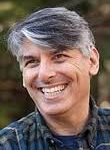 Dr Aaron Wolf, Professor of Geography, Oregon State University, USA
Dr Aaron Wolf, Professor of Geography, Oregon State University, USA
Aaron Wolf is a professor of geography in the College of Earth, Ocean, and Atmospheric Sciences at Oregon State University, with an appointment as Professor of Water Diplomacy at IHE-Delft Institute for Water Education. He has an M.S. in water resources management (1988, emphasizing hydrogeology) and a Ph.D. in environmental policy analysis (1992, emphasizing dispute resolution) from the University of Wisconsin, Madison. His research focuses on issues relating transboundary water resources to political conflict and cooperation, where his training combining environmental science with dispute resolution theory and practice have been particularly appropriate. Wolf has acted as consultant to the US Government, the World Bank, the US Bureau of Reclamation, and several international governments and development partners on various aspects of water resources and conflict management.
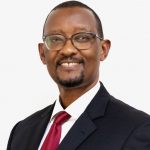 Dr Canisius Kanangire, Executive Director, African Agricultural Technology Foundation
Dr Canisius Kanangire, Executive Director, African Agricultural Technology Foundation
Dr Kanangire is the Executive Director of the African Agricultural Technology Foundation. Prior to this he was the Executive Secretary of the African Minister’s Council of Water before which he was the Executive Secretary of Lake Victoria Basin Commission, an inter-governmental institution under the East African Community, mandated to promote sustainable development and poverty eradication in the Lake Victoria Basin. He holds a master’s and a PhD in Aquatic Sciences, with specialization in Freshwater Ecology, Aquaculture and Wetlands Management, both from the University of Namur, Facultes Universitaires Notre-Dame de la Paix, Namur (Belgium). He also holds a University Degree (Licence) in Biology with a major in Environmental Sciences and an Undergraduate Certificate (Graduat) in Biology and Chemistry from the Institut Supérieur Pédagogique de Bukavu, in D.R. Congo. He is an expert in water resources management, especially in international waters management – (river/lake basin management) and in transboundary natural resources management.
ICWC Strategy 2021-2026
With a fresh six-year agreement with its partners, ICWC launches a new strategy for 2021 - 2026 to improve cooperation among shared waters, economic development, security and welfare among developing countries.
Download the ICWC Strategy 2021-2026